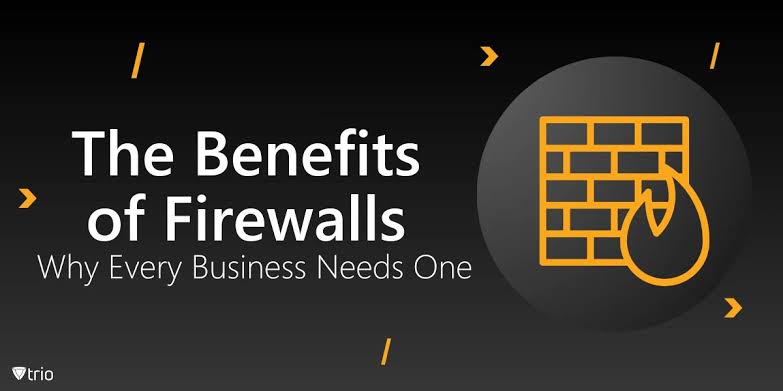The Benefits of Using a Firewall Protection
In today’s digital age, where cyber threats are constantly evolving, having strong defenses in place is no longer optional but necessary. Among the most reliable and widely used security tools is the firewall. A firewall acts as a protective barrier between your device or network and the outside world, monitoring and filtering traffic to ensure only safe data passes through. Whether for individuals, small businesses, or large organizations, firewall protection plays a vital role in safeguarding sensitive information and maintaining overall system performance.
Protects Against Unauthorized Access
One of the primary benefits of a firewall is its ability to prevent unauthorized users from gaining access to your system. Hackers often try to exploit open ports or weaknesses in a network, but a firewall filters traffic and blocks suspicious connections before they can cause harm. This layer of defense helps ensure that only trusted sources can communicate with your devices, reducing the risk of cyber intrusions and data breaches.
Blocks Malicious Software and Viruses
Firewalls act as the first line of defense against malware, spyware, and other harmful software that could enter through the internet. By scanning incoming data packets, firewalls can identify unusual patterns or known threats and block them immediately. This prevents malicious programs from compromising your operating system, stealing information, or slowing down performance.
Provides Better Network Monitoring
Another important benefit of firewall protection is improved visibility into network activity. Firewalls track and log traffic, making it easier for administrators or individuals to monitor how devices are being used. This insight can help identify suspicious activity, excessive bandwidth consumption, or unauthorized attempts to connect to the network. Regular monitoring through firewall logs allows quick action against potential threats.
Enhances Data Security
In a time when cybercriminals target personal and financial data, protecting sensitive information is essential. Firewalls add a layer of security by ensuring that private data such as passwords, banking details, or confidential business files remain safe from interception. For organizations, this level of protection helps maintain customer trust and comply with data security regulations.
Controls Online Activity
Firewalls also allow users to control and manage the type of traffic that enters or exits a network. Businesses often use firewalls to block access to non-work-related websites or applications that can waste time or pose security risks. On a personal level, firewalls can be customized to restrict certain online activities, helping parents or individuals maintain safer browsing environments.
Prevents Identity Theft
Identity theft is one of the most common cybercrimes, often caused by hackers stealing personal information through unsecured networks. Firewalls help prevent this by stopping malicious data requests and ensuring that outgoing information is transmitted only to trusted destinations. By blocking harmful phishing attempts or suspicious connections, firewalls reduce the chances of personal data falling into the wrong hands.
Supports Secure Remote Work
With the rise of remote work, employees often connect to company networks from different locations and devices. Firewalls make this process more secure by ensuring that remote connections are encrypted and free from outside interference. This is particularly important for businesses managing sensitive files or client data, as firewalls provide the assurance that remote access remains safe.
Reduces System Downtime
Cyberattacks can cause significant disruption, slowing down systems or forcing complete shutdowns. By proactively blocking threats, firewalls minimize the chances of downtime that can affect productivity. Businesses benefit the most here, as avoiding downtime means fewer operational losses and smoother workflow.
Offers Peace of Mind
Perhaps one of the greatest benefits of firewall protection is the peace of mind it brings. Knowing that a system is actively monitoring threats and filtering out harmful activity allows individuals and organizations to focus on their tasks without constantly worrying about cybersecurity risks. This assurance encourages a more confident and secure use of technology.
Conclusion
Firewall protection remains a cornerstone of cybersecurity. It prevents unauthorized access, blocks malware, protects sensitive data, and provides control over online activity. For businesses and individuals alike, a firewall is not just a technical tool but a necessary safeguard that ensures both safety and efficiency in an increasingly connected world. As cyber threats continue to evolve, maintaining strong firewall protection is one of the smartest decisions anyone can make to protect their digital life.




Nice
Fire wall protection cool
Nice blog
Wow
Can I get another on this?
How strong is fire wall?
Awesome
Amazing